How one freshman congresswoman plans to save the Affordable Care Act
WASHINGTON — Nobody in Washington seems to like the Affordable Care Act. Republicans, who opposed it unanimously when it passed in 2009 and 2010, want to repeal it altogether, claiming it gives too much power to the federal government. Democrats argue the law doesn’t go far enough: Sen. Bernie Sanders, I-Vt., wants to replace the ACA with Medicare for All, which would get rid of private insurance entirely.
The thing is, nobody outside Washington wants a dramatic reworking of a health law that provides coverage to 20 million Americans who previously didn’t have health insurance, while also making a tentative start on lowering the costs of medical care. Voters may believe, to borrow a phrase from Winston Churchill, that President Barack Obama’s signature health law, like democracy itself, is the worst health care policy except for everything else that has been tried.
Recent history has shown as much. When the GOP tried to repeal and replace the ACA in the spring and summer of 2017, its various plans proved unpopular. Meanwhile, the progressive alternative proposed by Sanders and championed by many of his colleagues — a health care system run entirely by the federal government — also does not enjoy broad support, at least not once people find out it means they have to give up their private plans and potentially pay higher taxes.

“The problem is that many voters are not focused on such lofty goals” as Medicare for All, the Washington Post recently reported. “They want something simpler — to pay less for their own health care.” That’s exactly what a Kaiser Family Foundation poll conducted in April found, with nearly three-quarters of respondents saying they wanted Congress to fix the ACA, not scrap it in favor of a system shaped by political ideology.
Enter Lauren Underwood, a 32-year-old Democratic congresswoman from suburban Chicago, who won in a heavily Republican district by promising to use her experience as a nurse and health policy expert to fix Obama’s much-maligned health law. Now, in an old-fashioned development rare for a Congress riven by ideology, she is trying to make good on her promise by introducing a plan that would both allow more people to buy health insurance through the federal government and make that insurance significantly more affordable.
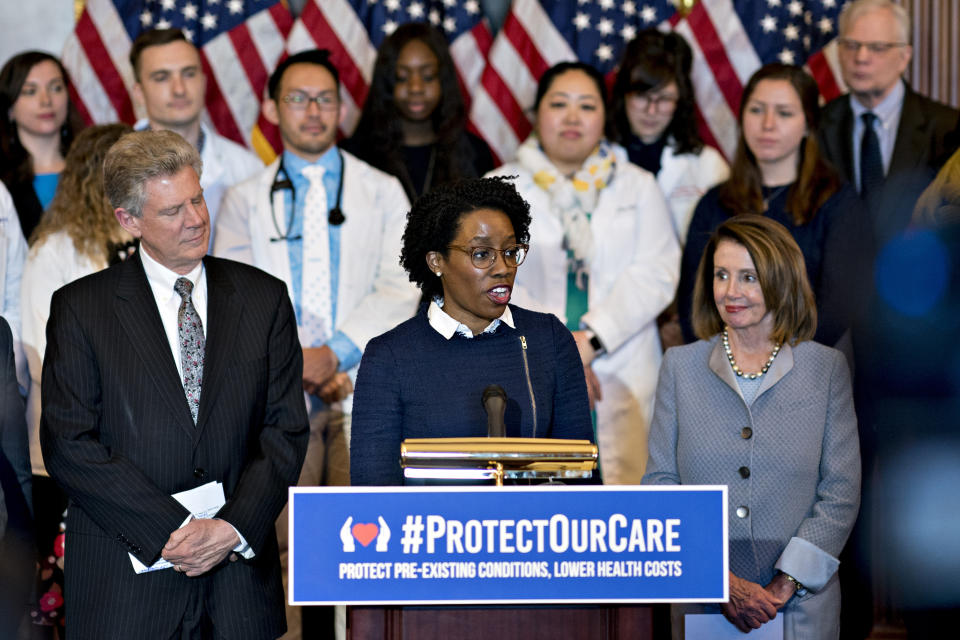
Underwood’s plan — introduced in March and known as the Health Care Affordability Act — would offer a potentially crucial boost to ACA enrollment by blasting away the dreaded “subsidy cliff,” which mandates that no family of four making more than $100,400 can qualify for any tax credits whatever to help pay for insurance. The plan would also cap the premiums people pay on their health insurance at 8.5 percent of income. Some people now could be paying three times that much, making insurance technically attainable but practically unaffordable.
Her staff says her plan would reduce premiums for 20 million people, including 9 million who currently do qualify for tax credits but have chosen not to buy insurance.
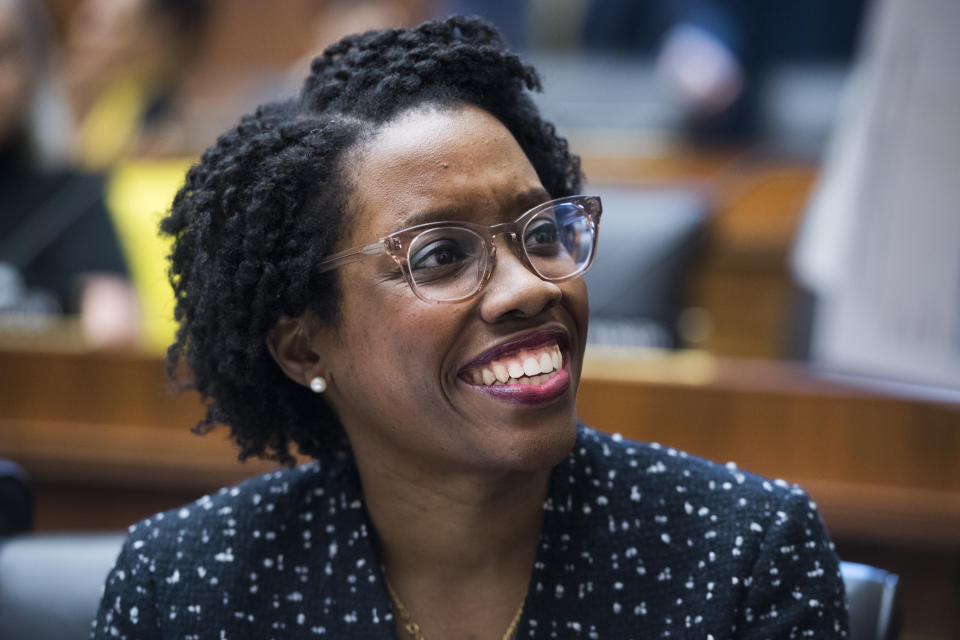
Health care experts praise Underwood’s vision, even while acknowledging that it will take more than sound policy to sell that vision to a hostile Senate controlled by Republicans. “This is it,” says Charles Gaba, a health care policy analyst who blogs at ACAsignups.net. “As far as I am concerned, it’s one of the most important parts of improving the Affordable Care Act, period,” he says of Underwood’s bill.
Gaba explains that “the single biggest shortcoming of the ACA” is that subsidies for people who wish to purchase health care through the marketplace “cut off too low” and “are simply not generous enough” for those who do make the cutoff.
Andy Slavitt, who was a top health care official in the Obama administration, agrees. “Very sound. Most important of the bills,” he says, referencing the several measures Democrats have introduced to shore up the ACA in the face of a seemingly unrelenting onslaught by the Trump administration.
Underwood’s sole focus is affordability, a major complaint of both Democrats and Republicans. Her bill — a single page in length, compared with the 974 pages of the ACA — would allow even individuals and families with incomes about 400 percent of the federal poverty level, where all current subsidies end, to qualify for subsidies when purchasing health care through the government marketplaces. At the same time, the sliding scale of premium payments would encounter a hard ceiling at 8.5 percent of income, which would have the effect of making insurance far more affordable than it currently is.
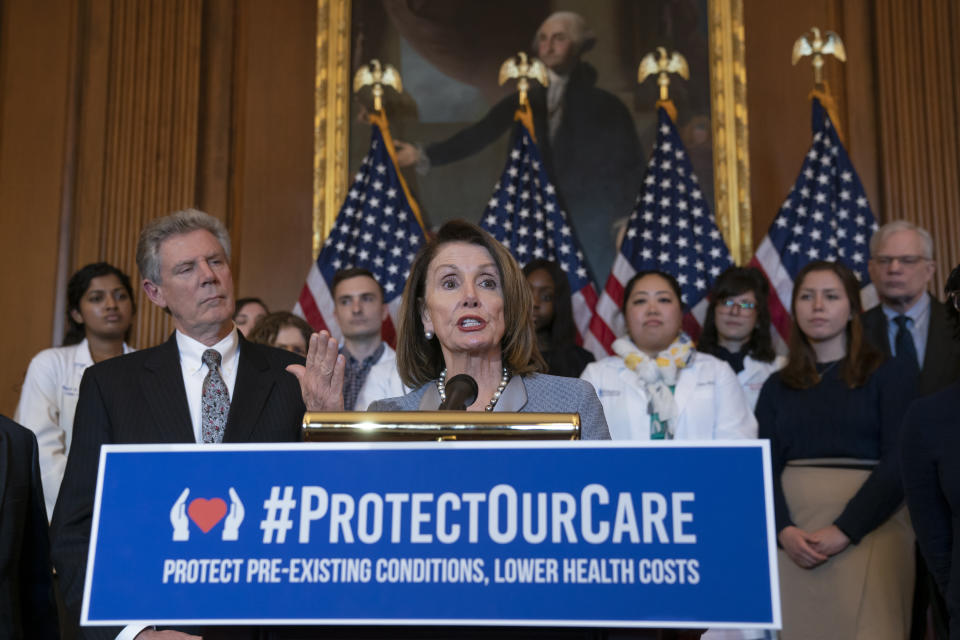
"This is an important fix that we can pass now,” Underwood said in a recent conversation with Yahoo News. Her staff says they do not yet know how much the bill would cost because it has not yet been “scored” by the Congressional Budget Office. Gaba, the health care analyst, says the cost could be $15 billion per year, a fraction of 1 percent of a $4 trillion budget. If the estimate of 20 million beneficiaries of the expanded benefits is correct, that translates to an outlay of $750 per person per year. Slavitt believes a corporate tax rate increase of 2 or 3 percent would fully pay for the more generous subsidies.
Underwood, a smart politician, knows that policy is only as good as the politics that see it through. Along with several other ACA fixes, Underwood’s bill has been put before House Ways and Means, the influential committee helmed by Rep. Richard Neal, D-Mass. If, and how quickly, the bill moves through the committee will be the first indication of its prospects.
“The committee has not yet decided which ACA-related bills it’s going to be taking up, but Chairman Neal has talked to Rep. Underwood about her legislation,” a Democratic staffer on the committee told Yahoo News. “At this point, we’re still evaluating bills and determining how to move forward.”
Underwood’s bill does have the support of House Speaker Nancy Pelosi, D-Calif. Though she has been cool to proposals put forth by other first-termers — most notably the sweeping Green New Deal environmental plan introduced by Rep. Alexandria Ocasio-Cortez, D-N.Y. — Pelosi has touted Underwood’s solution. An aide to Democratic leadership in the House who asked not to be named praised Underwood’s bill as “hugely consequential.” (He also praised Rep. Andy Kim, D-N.J., for his proposal to help states create their own health insurance marketplaces instead of relying on the federal one.)
Another booster of the bill is House Majority Leader Steny Hoyer, D-Md., who “supports efforts to expand tax credits to make health coverage more affordable and commends Rep. Underwood's focus on this issue,” according to Mariel Saez, a spokesperson for Hoyer’s office.
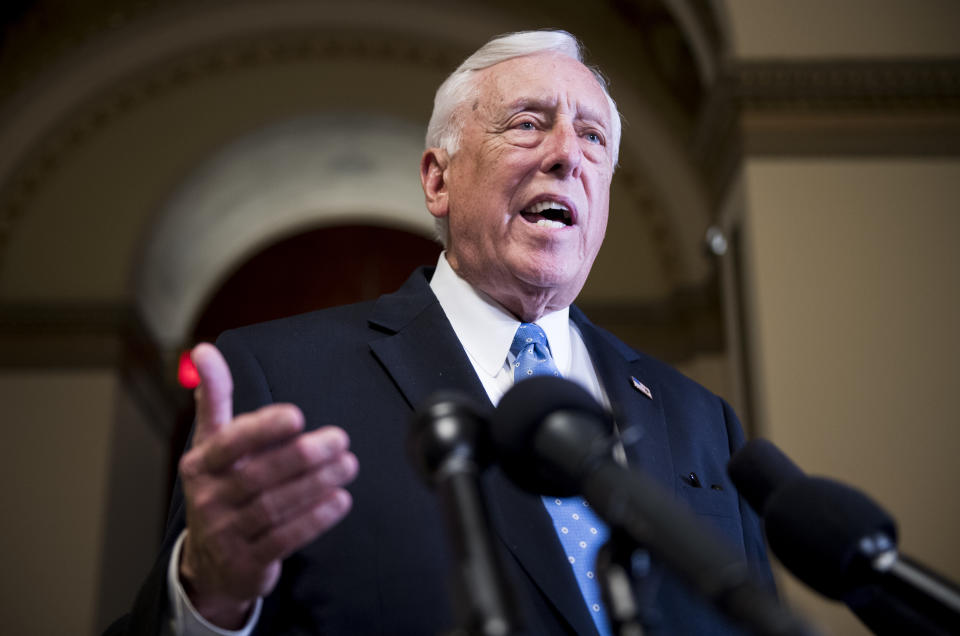
Endorsed by two of the chamber’s most powerful Democrats, the bill will be difficult for Neal to ignore. The challenge, of course, will not be in the House, with fellow Democrats. It will be in the Senate, with Republicans who fell just a vote short of repealing the ACA and are unlikely to sign on to a Democratic fix.
Persuading GOP members “has not been my focus,” Underwood acknowledges. But she also hopes that when the time comes, they will at least hear out her pitch.
A trained nurse with degrees from the University of Michigan and Johns Hopkins, Underwood joined the Obama administration in 2014 to work on the ACA. Three years later, she decided to seek office herself. The seat she ran for was held at the time by Republican Randy Hultgren, who had voted to repeal and replace the ACA. Before that, it had been the two-decade domain of Dennis Hastert, a Republican House speaker who resigned in scandal in 2007.
Underwood, who is African-American, explicitly promised to preserve the health law, and won by 15,000 votes in an overwhelmingly white district that the Chicago Tribune called “a reliable Republican bulwark.” In other words, Underwood has already persuaded Republican voters. Can she also persuade Republican legislators?
Her best weapon is a wonkish, almost apolitical approach rooted in policy analysis — one free of the confrontationally progressive rhetoric some of her colleagues have embraced. That rhetoric can yield retweets, but as the recent fight over funding for the border emergency showed, it can also hamper legislative accomplishments by repelling moderate Democrats, not to mention just about all Republicans.
Underwood has not signed on to the Medicare for All plan introduced by Rep. Pramila Jayapal, D-Wash., and, in general, studiously avoids talking about that controversial approach. But Underwood’s bill could pave a path toward that goal. “Lauren Underwood Builds A Bad-Ass Healthcare Bridge To Medicare For All,” ran a headline in Wonkette, the left-leaning progressive news site.
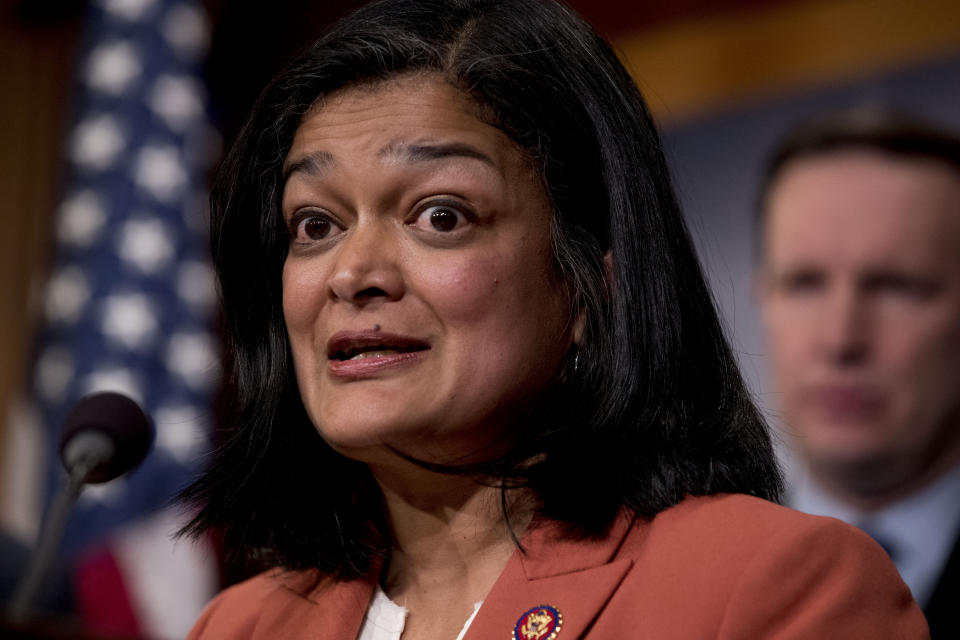
Republicans have shown no interest in improving the ACA, which they generally consider a step toward socialized medicine.
“In the Senate, it's not gonna go anywhere,” believes health care analyst Gaba. The Senate majority “is not going to allow anything that improves the Affordable Care Act to pass this cycle,” not under the rule of Senate Majority Leader Mitch McConnell, R-Ky., whose hatred of Obama’s signature accomplishment has the depth of religious conviction.
“It’s still good policy,” Gaba says. “And they should still push it.”
_____
Read more from Yahoo News:
GOP whip Scalise cites Trump accuser’s ‘bizarre’ CNN interview in doubting her account
Pentagon secretly struck back against Iranian cyberspies targeting U.S. ships
'Great Replacement' ideology is spreading hate in U.S. and across the globe
How Europe's smallest nations are battling Russia's cyberattacks



